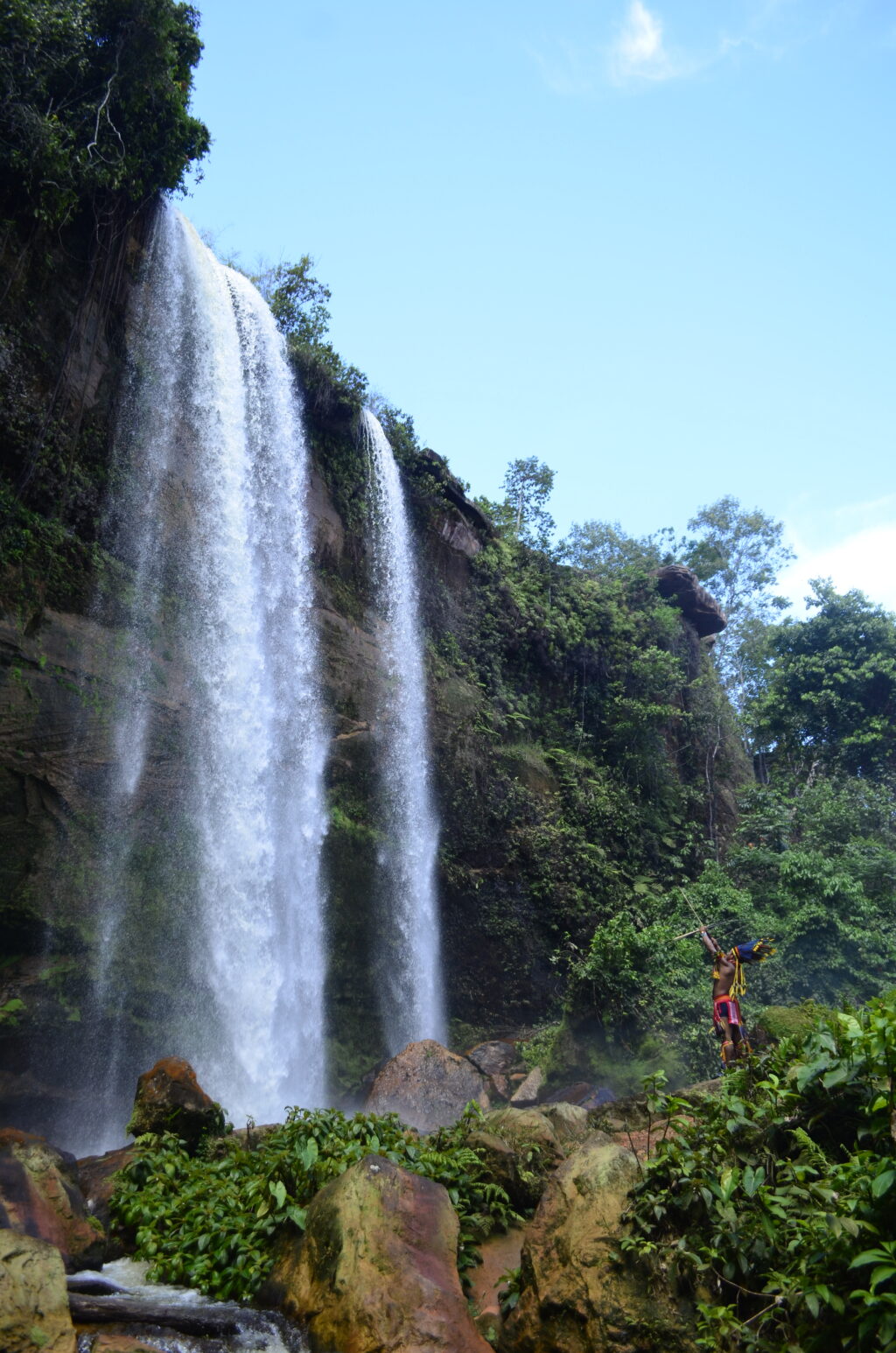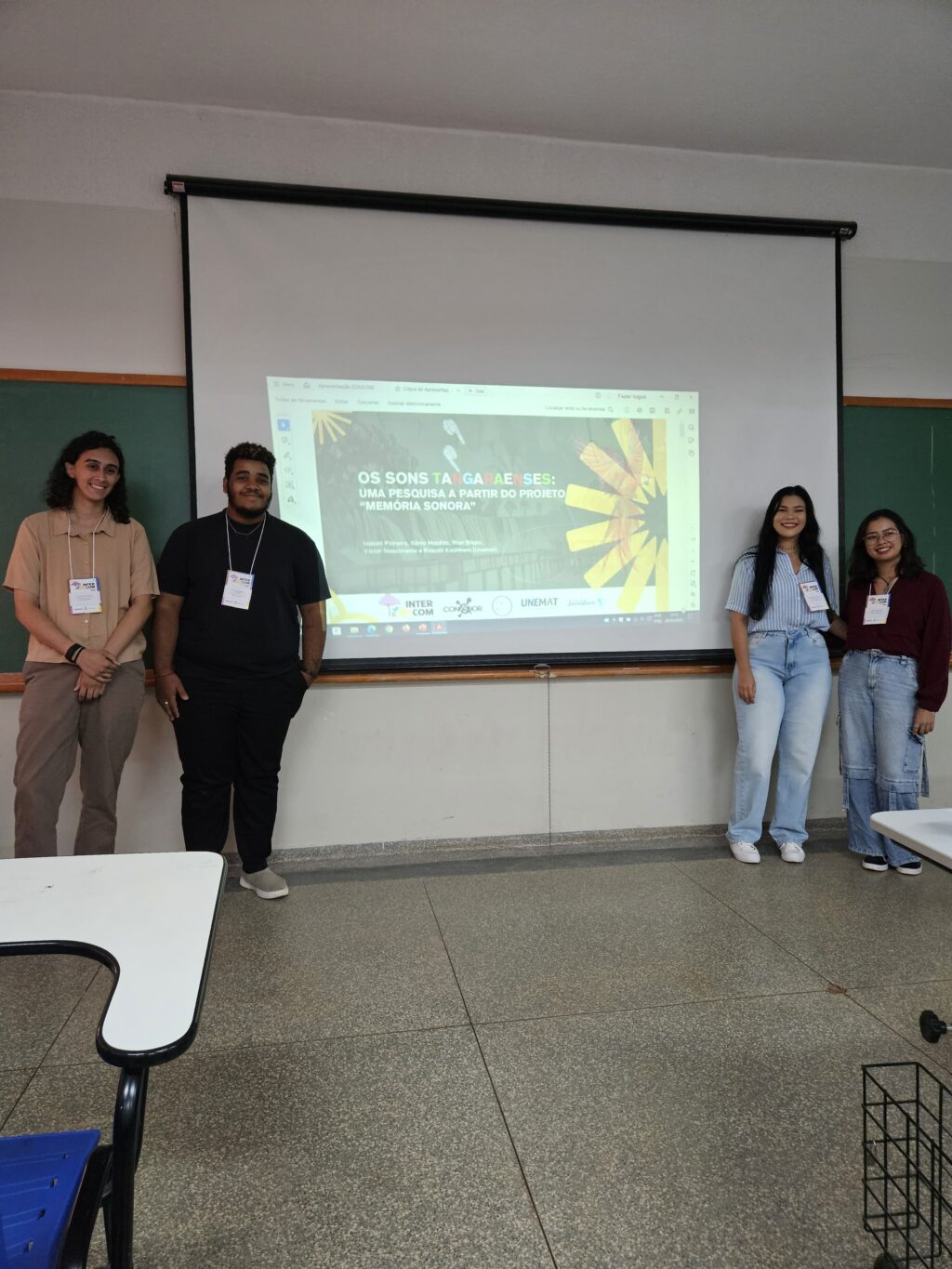Photo of student, Unemat, portrays native Haliti-Paresi to win a prize at the Duplex Centro-Oeste
The image is made in the Village and the Beautiful, in Tangará da Serra (MT), thanks to the strength of the identity of the indigenous Haliti-Paresi, and consists of a series of projects, Unemat-focused on the appreciation of their traditional territories.
AI generated audio
By Victor Nascimento – the Intern journalism/OPAN

The quiet strength of a picture, a gesture, an ancestor, a force of nature, and is crossed in the history of the people’s Haliti-Paresi. It was as soon as a student of journalism, Guillerme Enrik has Been at the University of the State of Mato Grosso (Unemat), won a prize Giveaway! at the regional level of the award is that the part of the congress of the Sociedade Brasileira de Estudos Interdisciplinares da Comunicação (Intercom), which is the biggest communications America, Latin america, within the category Photo Art.
The winning image was made in the Village and the Beautiful, which is located in Tangará da Serra (MT), and that it is indian Boss Kezo, group Haliti-Paresi people, who acts in defense of their territories and strengthen their cultural practices, including the etnoturismo, and with the support of a operação Amazônia Nativa (OPAN). Now, the picture moves to the stage of the national award, which takes place in Vitória (espírito santo), in September.
“In the process of the photo-it was good to be spontaneous. I was more focused on taking pictures of the place, I had a conversation with Kezo, what is the place in terms of how they looked at this place, which, according to him, it’s like a sanctuary under the open sky, that more people should be aware of. After that, he began to talk, and he went out walking, and I have been taking pictures of the entire journey. When he arrived at the stone, he said that I would be able to hit a bird flying. And then, I have photographed them,” he says Guillerme.
But this is not the only achievement of the Unemat, and six papers were awarded a prize in the Giveaway! on the stage in the Center-West, a total of 13 submissions in the form of the experimental and the other 12 are presented in the Thematic working Groups (Wgs) of the event. Projects that have been submitted by the institution to demonstrate the commitment of the university to the public in the appreciation of diversity, and the construction of the other narratives in the field of communication.
Among the highlights of the working group is of the Educom, the Indigenous initiative, which is working with the students at the School of Indigenous and Intercultural (Faindi) and a student of journalism, is also in the Unemat. The project conducts workshops for educomunicação, and the production of media, with indigenous young people, and strengthening the role of communities, and fostering self-empowerment in the production of content for your own context.
In another work, it is the Memory of the Sound, the design of the extension is that it captures a landscape of sound) in different areas, and in Tangará da Serra, including the villages of indigenous people. The idea is to listen and to record the sounds of as a way of recording memories, stories, and ways of living, creating a collection that is responsive, which breaks away from the erasing the history of those people.

The scholarship in the Memory of the Sound, Rian Bishop, it also points to the importance of the project is to look to the indigenous peoples of the register and the memory of the city’, “Brazil’s indigenous land, and that it is not possible to construct a record, a memory, without having to consider these spaces and their communities. Many of these sounds are fading away, either by the passage of time, or by the effects of climate change. And as a large part of the indian culture is transmitted, through language, record the music and to understand the acoustic environment of the villages, it is even more urgent,” he said.
Paths that cross each other
For the record, by Guillerme, as a result of this meeting, the Haliti-Paresi, and extension projects conducted in conjunction with indigenous communities in Tangará da Serra, that is, the communication can be a tool of listening, respect and the strengthening of the struggles of the indigenous peoples, which interacts directly with the mission of OPAN, who for more than five decades of acting with the indigenous people from the Mato Grosso and Amazonas, in the defense of their territories and cultures, and develop their own forms of organization.
With the recognition, on the Intercom: the midwest, the jobs that follow it now, to the national stage, bringing the sights and sounds of the traditional lands of the midwest-to other parts of the country.
